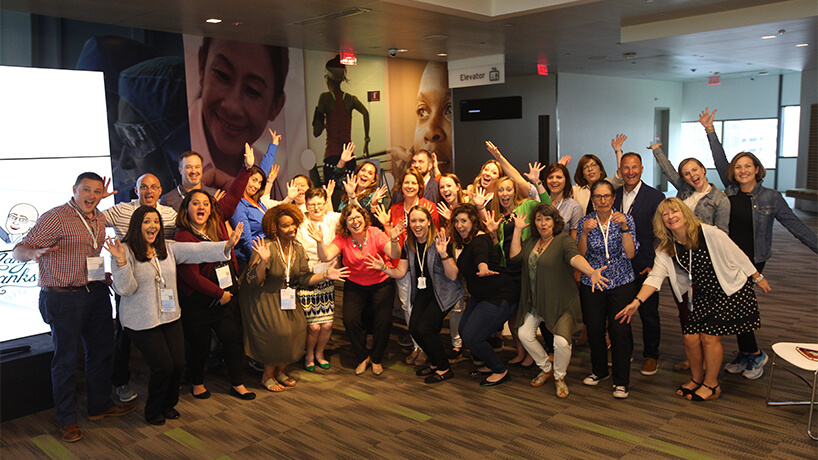Forget months of brainstorming. At the PCMA Education Conference, teams felt the pressures of a time crunch in a hackathon dedicated to delivering new experience-design solutions.
Remember the last time you tried to reimagine a portion of your meeting or conference? The process may have involved weekly brainstorming sessions, presentations to the executive team, and revisions. Lots of revisions. It’s likely your plans hit a few speed bumps, too. No, someone might say, that won’t work with our attendees. Not going to happen, another might respond, due to our budget.
Before the PCMA Education Conference officially kicked off in Cleveland on June 10, a group of participants ditched that it’s-not-possible mindset — and the luxury of time — in a hackathon at the HIMSS Innovation & Conference Center. The event paired four groups of five event organizers and suppliers together to develop solutions to enhance learning and experience design. To avoid their typical constraints and concerns in creative brainstorming, Jamie Murdock, vice president of sales at Experient, told PCMA that he and co-facilitator Donna Kastner, founder of Retirepreneur, assigned all the teams to focus on ideas that PCMA could integrate into the environment at Convening Leaders 2019 in Pittsburgh.
“We needed to give all of them one common goal to share,” Murdock said. “Without it, I worried that they might all approach the challenge with their own events and responsibilities in mind.”
Welcoming a Wildcard to the Team
While participants needed to share an objective, Murdock and Kastner didn’t want them to share the same beliefs about live events. “When you put people from the same industry together, there tends to be a great deal of cognitive bias,” Kastner told PCMA. “To make sure that we could fuel new thinking, we introduced a wildcard to each team. A wildcard is someone who is familiar with your industry, but they’re not directly involved in it.”
“Wildcards,” Kastner added, “tend to introduce new and unconventional ideas that could have some traction.”
Murdock added that the wildcard effort aimed to increase diversity in the makeup of the teams, too. Entrepreneurial minds brought a different business sense to two teams. A Georgetown University undergrad student offered a view from an emerging generation of conference participants. An all-female team got a male perspective. “Diversity is so important in hackathons,” Murdock said. “It prevents a culture of groupthink.”
A Friendly Competition
Each group aimed to identify one major pain point of the Convening Leaders conference experience. “The big challenge in any hackathon is zeroing in on the problem,” Kastner said. “It’s crucial to get very specific on the issue you’re trying to solve. The more you can define the problem, the more successful you’ll be.”
Success, in this case, was in the hands of three judges. After the five-hour session, each team delivered a five-minute Shark Tank–style presentation on their ideas, followed by a five-minute question-and-answer session. The solutions covered all aspects of the attendee experience: facilitating more meaningful networking opportunities with pre-conference pairings, leveraging speakers in intimate living room–style conversations, and creating a community connection that extends past the closing session.
While judges had to pick a winner — $500 gift cards were on the line — Kastner said that the real victory worth celebrating during any hackathon is the ability to explore new possibilities. “These are filled with meaningful conversations that event organizers dream of but are hard to make happen,” Kastner said. “The right hackathon setting can be the ultimate ingredient for innovation.”
Interested in learning who took home the hackathon prize? Watch the complimentary broadcast on Tuesday. The winner will be announced during the morning main-stage session. And stay tuned to pcma.org for a complimentary hackathon handbook from Kastner and Murdock that will help you implement a similar problem-solving exercise within your own organization.

